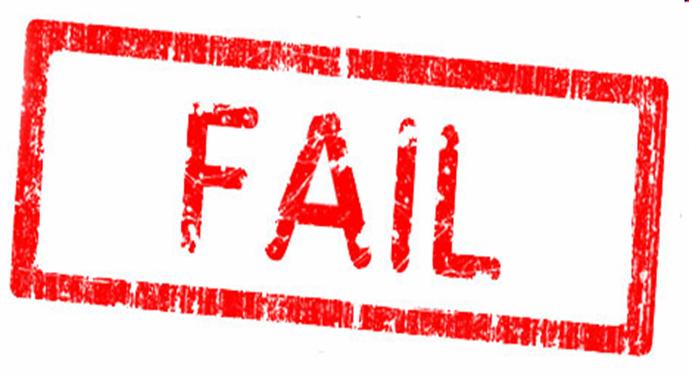
This was copied from Judge Englehard’s (151st District Court, Harris County, TX) website:
Default Judgment Motions
Common Mistakes Attorneys Make or “The Dirty Dozen”
1. WarGames: No Defense Manpower Data Center (DMDC) printout as an exhibit to the non-military affidavit. A link to this website is on the Court’s judicial homepage which may be located at http://www.justex.net/Courts/Civil/CourtSection.aspx?crt=10&sid=40.
2. Saving Private Ryan: Conducting a DMDC search without a SSN (which is not bad in and of itself—just means the DMDC cannot authoritatively assert that this is the same individual that the query refers to) and not providing corroborating evidence in non-military affidavit that the individual is not in the military. Corroborating information such as a family member’s statement, or proof that the person is too old or young to be on active duty, etc., is especially necessary when the person has a common first and last name.
3. Beyond a Reasonable Doubt and Necessary Roughness: Improper proving up of fees in attorney’s fees affidavit: use of neither “reasonable” nor “necessary” or one and not the other, but not both as required.
4. The Debt Collector: Filing a proposed order that seeks attorney’s fees for post-judgment/collection efforts. There is no authority that the author has seen allowing for post-judgment collection attorney’s fees (as opposed to appellate attorney’s fees).
5. The Bad News Bears: Not conditioning an award of appellate attorney’s fees on an unsuccessful appeal by the defaulting defendant in the proposed order or the attorney’s fees affidavit. That is, it has to be bad news for the appellant for you to be entitled to your appellate attorney’s fees.
6. The Blues Brothers: Asking for a specific amount to be awarded as costs, rather than just asking for “taxable costs of court” in both the proposed order and the motion for default judgment. Don’t cheat yourself out of taxable costs by inserting a specific amount. Let the abstract clerk in the district clerk’s office figure out how much the taxable costs are. You may have missed some, and you will surely incur more post-judgment, such as fees for a writ of execution, abstract fees, and recording fees. This self-sabotage can give you the blues.
7. The Departed: Filing a proposed order seeking an interest rate that departs from the standard—5%—currently under Texas Finance Code section 304.003, or 6% under Texas Finance Code section 302.002 in creditor/obligor suits—without stating in the affidavit and motion the legal basis for departing from the standard, such as a contractual interest rate.
8. 50 First Dates: Filing a proposed order seeking pre-judgment interest which accrues from a particular date without stating the legal significance of the date in an affidavit and motion. Texas Finance Code section 304.104 allows for prejudgment interest to start accruing, at least in wrongful death, personal injury or property damage cases, on the earlier of the 180th day after the defendant receives written notice of the claim, or the date the suit is filed, and ending on the day preceding the date judgment is rendered. Tell the court the starting date for your prejudgment interest calculation, and why that date is significant.
9. My Cousin Vinny: This common failure might be limited to the author’s unique procedures, but could be used to illustrate the necessity of learning each particular court’s rules/requirements with regard to each motion: In a case involving substitute service of process, failing to comply with the additional requirements required before service is deemed to be perfected (i.e., not including result of mailing of certified and regular mail in return of service, not filing a copy of the returned green card, etc.). While the author is not quite as mean as Fred Gwynn’s Judge Chamberlain Haller, and you will not likely spend the night in jail for failing to adhere to them (the first time!), learning each court’s procedures is nevertheless important. A form-order in Word format is linked on the court’s procedures page (see number 1, above).
10. The Paper Chase: With regard to R. 736 Expedited Foreclosure Defaults, not providing the proper paper trail from the original lender to the applicant to show that the latter is entitled to an order allowing a foreclosure sale to go forward. Very often, the court is left to wonder what relationship, if any, exists between the original lender and the party seeking to foreclose. Obtaining this paperwork after the motion is filed will, of course, delay your requested relief, at a minimum.
11. 21 Jump Street: Filing a certificate of last known address for a corporation containing an address that is not that of the corporation itself, but is rather the address of the agent designated for service of process. Texas Rule of Civil Procedure 239a requires certification of, and mailing to, the last known address of the defendant notwithstanding that the defendant may have a different office registered for service of process. Whether that address is on Jump Street or somewhere else, it has to be the party’s own last known address.
12. The Count of Monte Cristo: Not showing in the damages affidavit the math used to arrive at the calculation of interest to be added to the principal.
~

Glad you liked the article (or were you calling it a “Fail?”) Not sure. In any event, please correct my last name to “Engelhart” at the top so people searching for me or my court’s website can find me if they’d like. Thanks,
Judge Mike
M Saber quiet title default judgment relief? US Supreme petition help?